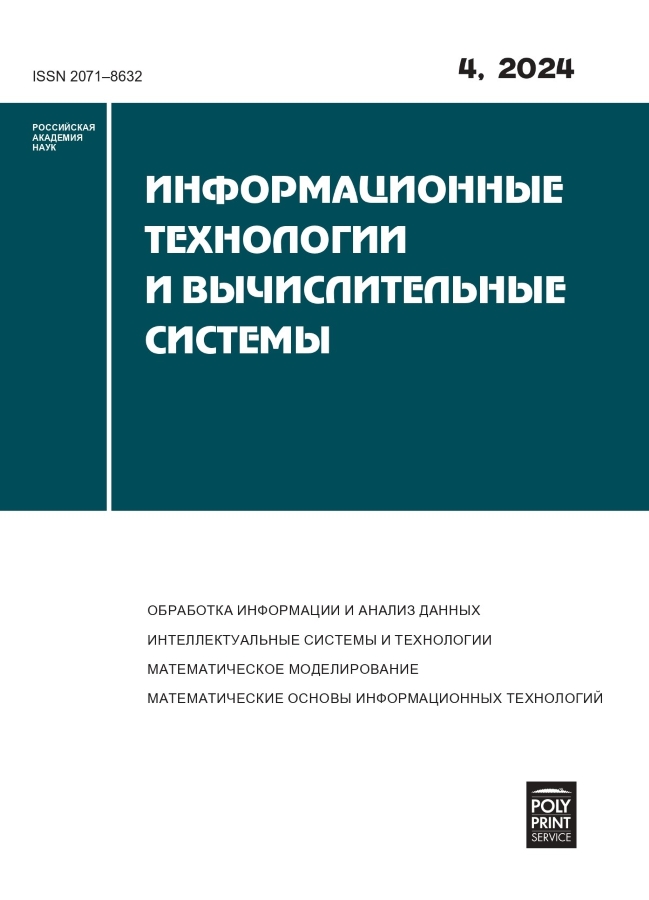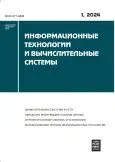Volunteer Computing Projects in Citizen Science: Dynamics and Statistics
- Authors: Ivashko V.S.1, Ivashko E.E.1,2
-
Affiliations:
- Karelian Research Center of the Russian Academy of Sciences
- Petrozavodsk State University
- Issue: No 1 (2024)
- Pages: 11-22
- Section: Computing systems and networks
- URL: https://journal-vniispk.ru/2071-8632/article/view/287286
- DOI: https://doi.org/10.14357/20718632240102
- EDN: https://elibrary.ru/HSJGCL
- ID: 287286
Cite item
Abstract
The rapid development of computing technology, along with the growth of the speed and availability of the Internet, provides new opportunities in the development of digital transformation technologies. One such technology is distributed volunteer computing as a form of "citizen science". Volunteer computing is a way of solving computationally intensive tasks using many computers of volunteers united in a common network. The BOINC software platform has been the de facto standard for organizing volunteer computing for more than twenty years and is used in various fields of science, both within the framework of fundamental scientific projects and applied ones. The article presents an analysis of the dynamics of the number and structure of volunteer computing projects, the share of fundamental and applied projects, the number of volunteer and the role of the Russian community. The study aims to analyze current trends in the development of volunteer computing.
About the authors
Valentina S. Ivashko
Karelian Research Center of the Russian Academy of Sciences
Email: va.lentina97@ya.ru
Junior Research, Laboratory of Digital Technologies for Regional Development of the Department of Complex Scientific Research
Russian Federation, PetrozavodskEvgeny E. Ivashko
Karelian Research Center of the Russian Academy of Sciences; Petrozavodsk State University
Author for correspondence.
Email: ivashko@krc.karelia.ru
Senior Researcher, Candidate of Physical and Mathematical Sciences, Associate Professor, Laboratory of Digital Technologies for Regional Development of the Department of Complex Scientific Research
Russian Federation, Petrozavodsk; PetrozavodskReferences
- Gazoyan A. G. Citizen science as an instrument of scientific communication: an analysis of Russian practice // NOMOTHETIKA: Philosophy. Sociology. Law. – 2021.– С. 810-817.
- Robinson L. D., Cawthray J. L., West S. E., Bonn A., Ansine J. Ten principles of citizen science // Hecker, S., Haklay, M., Bowser, A., Makuch, Z., Vogel, J., Bonn, A. Citizen Science: Innovation in Open Science, Society and Policy. – 2018. – С. 27-40.
- Zimmerman M. I., Porter J. R., Ward M. D., Singh S., Vithani N., Meller A., Mallimadugula U. L., Kuhn C. E., Borowsky J. H., Wiewiora R. P., Hurley M. F. D., Harbison A. M, Fogarty C. A., Coffland J. E., Fadda E., Voelz V. A., Chodera J. D., Bowman G. R. SARS-CoV-2 Simulations Go Exascale to Capture Spike Opening and Reveal Cryptic Pockets Across the Proteome // bioRxiv.– 2020.
- Tishchenko V., Prochko A. Russian participants in BOINCbased volunteer computing projects. The activity statistics (In Russ.) // Computer Research and Modeling. – 2015. – No 6. – С. 727-734.
- Nov O., Anderson D., Arazy O. Volunteer computing: A model of the factors determining contribution to community-based scientific research // Proceedings of the 19th International Conference on World Wide Web, WWW ’10. – 2010. – С. 741-750.
- Tishchenko V. Coopetition Strategy in Volunteer Computing: The Example of Collaboration Online in BOINC.RU Community // Computer Science and Information Technology. – 2018. – С. 31-39.
- Zhukova T., Tishchenko V. Volunteer Computing in Russia: The Empirical Model of Motivation Factors for Participation in VC-Projects // Obshchestvennye nauki i sovremennost. – 2019. – С. 86-96.
- Tishchenko V., Prochko A. Statistical analysis of communications of participants of virtual community boinc.ru (In Russ.) // Federal Research Center Computer Science and Control of the Russian Academy of Sciences. – 2018.
- Tishchenko V. Models of patterns of behavior of the participants of BOINC.RU community (In Russ.). – 2016.
- Dickinson J., Zuckerberg B., Bonter D. Citizen Science as an Ecological Research Tool: Challenges and Benefits // Annual Review of Ecology and Systematics. – 2010. – С. 149-172.
- Walker D., Smigaj M., Tani M. The benefits and negative impacts of citizen science applications to water as experienced by participants and communities // Wiley Interdisciplinary Reviews: Water. – 2020.
- Haklay M. Citizen Science and Volunteered Geographic Information: Overview and Typology of Participation. – 2013. – С. 105-122.
- Anderson D. P. BOINC: a platform for volunteer computing // Journal of Grid Computing. – 2020. – С. 99-122.
- Korpela E., Werthimer D., Anderson D., Cobb J., Leboisky M. SETI@home massively distributed computing for SETI // Computing in science & engineering. – 2001. – С. 78-83.
- Nikitina N., Manzyuk M., Juki ́c M., Podlipnik ˇC, Kurochkin I., Albertian A. Crowdsourced Drug Discovery: StartUp of the Volunteer Computing Project SiDock@home. – 2021. – С. 513-524.
- Cusack C. A., Peck E., Riolo M. Volunteer Computing Games: Merging Online Casual Gaming with Volunteer Computing // Computer Science. – 2008. – С. 78-83.
- Yakimets V. N., Kurochkin I. I. Development of projects of voluntary distributed computing based on road maps and multi-parameter estimates // International Journal of Open Information Technologies. (In Russ.). – 2020.
- Manzyuk M., Nikitina N., Vatutin E. Start-up and the results of the volunteer computing project RakeSearch // Russian Supercomputing Days. – 2019. – С. 725-734.
- Zaikin O., Petrov P., Posypkin M., Bulavintsev V., Kurochkin I. Using volunteer computing for sound speed profile estimation in underwater acoustics // Proceedings of the Third International Conference BOINC:FAST 2017.– 2017.– С. 43-48.
- Neverov, V., Khrapov, N. XANSONS for COD: a new small BOINC project in crystallography // Open Engineering. – 2018. – С. 102–108.
- Semenov A., Zaikin O., Kochemazov S. 319-355 // Springer Optimization and Its Applications 170. – 2021.
- Vatutin E., Belyshev A., Nikitina N., Manzuk M. Evaluation of Efficiency of Using Simple Transformations When Searching for Orthogonal Diagonal Latin Squares of Order 10 // High-Performance Computing Systems and Technologies in Scientific Research, Automation of Control and Production. – 2020. – С. 127-146.
Supplementary files










